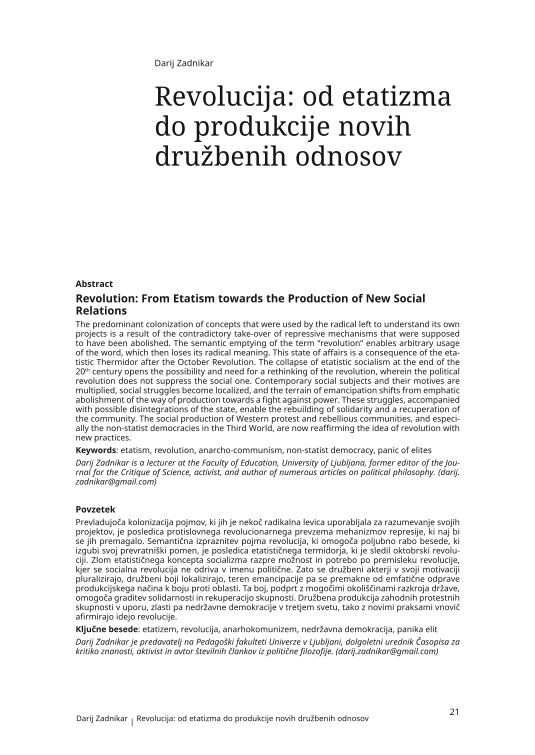The predominant colonization of concepts that were used by the radical left to understand its own projects is a result of the contradictory take-over of repressive mechanisms that were supposed to have been abolished. The semantic emptying of the term “revolution” enables arbitrary usage of the word, which then loses its radical meaning. This state of affairs is a consequence of the etatistic Thermidor after the October Revolution. The collapse of etatistic socialism at the end of the 20th century opens the possibility and need for a rethinking of the revolution, wherein the political revolution does not suppress the social one. Contemporary social subjects and their motives are multiplied, social struggles become localized, and the terrain of emancipation shifts from emphatic abolishment of the way of production towards a fight against power. These struggles, accompanied with possible disintegrations of the state, enable the rebuilding of solidarity and a recuperation of the community. The social production of Western protest and rebellious communities, and especially the non-statist democracies in the Third World, are now reaffirming the idea of revolution with new practices.




